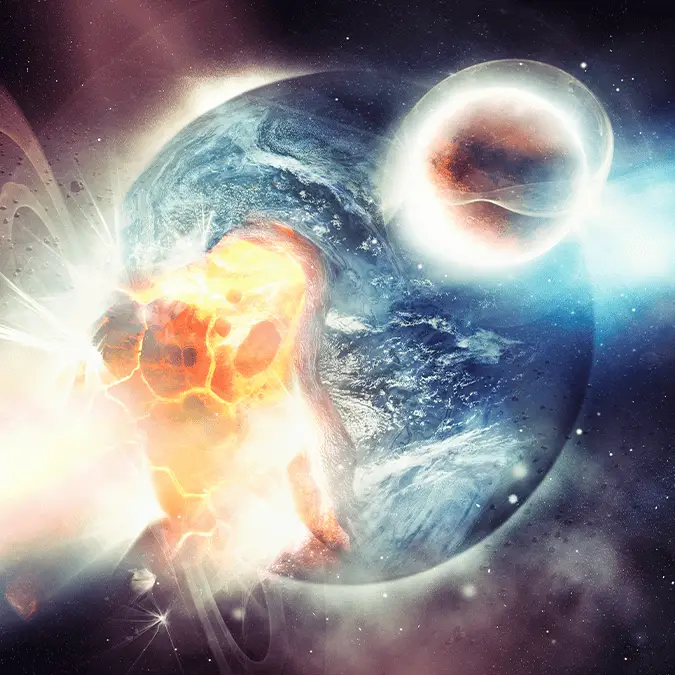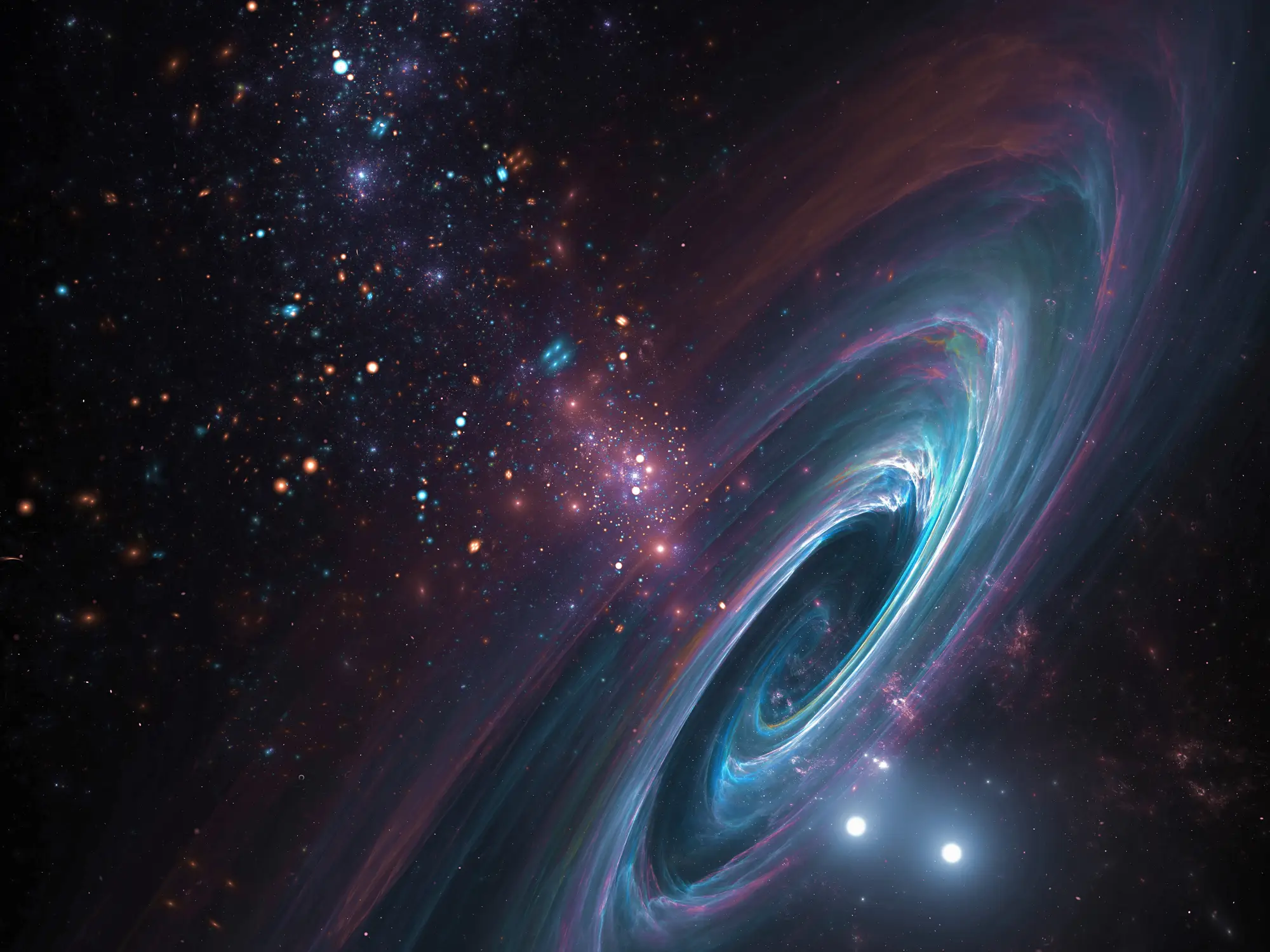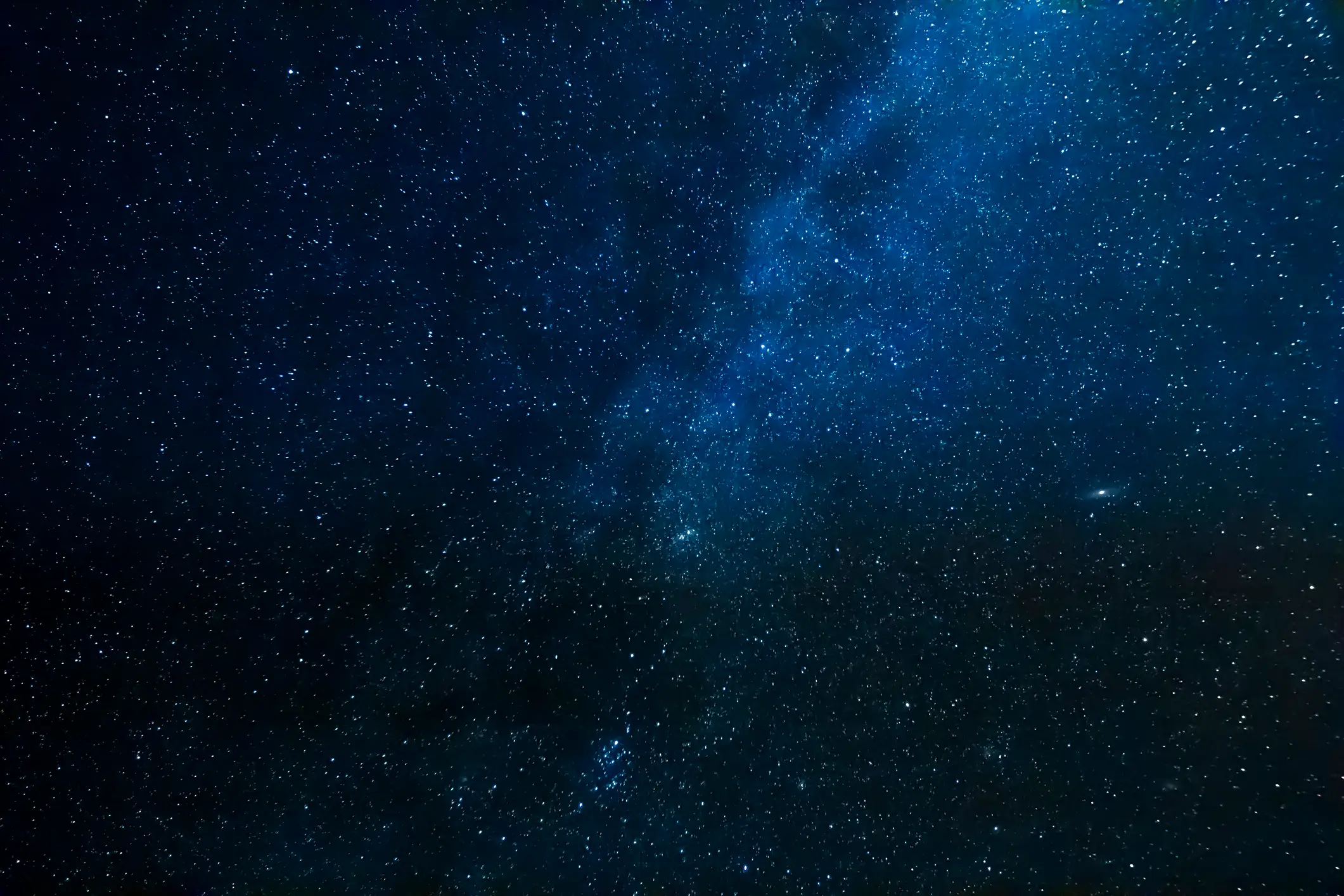
A study warns that 'the end of the universe' could come sooner than scientists first thought.
If it’s not AI predicting triggers and death tolls of World War III or mystics like Baba Vanga dropping doomsday prophecies, it’s science sharing our pending doom.
According to new calculations, the end of our universe might be closer than we thought - like, way closer.
Astrophysicist Heino Falcke and his colleagues, Michael Wondrak and Walter van Suijlekom, from Radboud University in the Netherlands followed up on their 2023 paper which found that black holes are not the only things in the universe that emit Hawking radiation.
Advert
If you don't know, Hawking radiation is basically when tiny particles suddenly pop into existence and fly away, taking a bit of a black hole’s energy with them.

But instead of being limited to black holes like scientists thought, they found other super-dense objects like neutron stars and white dwarfs also lose energy in a similar way. Even massive galaxy clusters could be giving off this kind of radiation as they evaporate over time.
"After a very long period, that would lead to everything in the universe eventually evaporating, just like black holes," Falcke explained in 2023. "This changes not only our understanding of Hawking radiation but also our view of the universe and its future."
So, how much time does the universe have left?
The team managed to calculate the lifespan of different celestial objects to figure out how long the universe has before it all vanishes. After factoring in Hawking radiation, they now estimate that everything could be gone in just 10^78 years.
Okay, so we'll be well gone before that, but it's a lot less than researchers originally believed, to be around 10^1,100 years.
"So, the ultimate end of the universe comes much sooner than expected, but fortunately it still takes a very long time," said Falcke.

The research studied what happens to stars after they die. When a star burns out, the outer material ejects and the core collapses into an ultradense object before becoming one of three super-dense objects: a white dwarf, a neutron star or a black hole.
Now, the denser an object, the stronger its gravitational pull and the faster it loses energy through this radiation process. Black holes are the most dense, while white dwarfs are the least, meaning the latter would take the longest to evaporate. The researchers used the lifespan of a white dwarf as a benchmark to estimate how much time the universe has left.
Turns out, an average white dwarf only has a lifespan of around 10^78, the team found. In comparison, a supermassive black hole would take around 10^96 years, while the vast dark matter surrounding a galactic supercluster could stick around for 10^135 years. Even those numbers are drastically shorter than the previous estimate of 10^1,100 years for a white dwarf remnant.
In reality, none of this is going to impact us anytime soon. What the team hoped to gain from studying these extreme questions is to understand how the universe works. van Suijlekom explained: "By asking these kinds of questions and looking at extreme cases, we want to better understand the theory, and perhaps one day, we unravel the mystery of Hawking radiation."